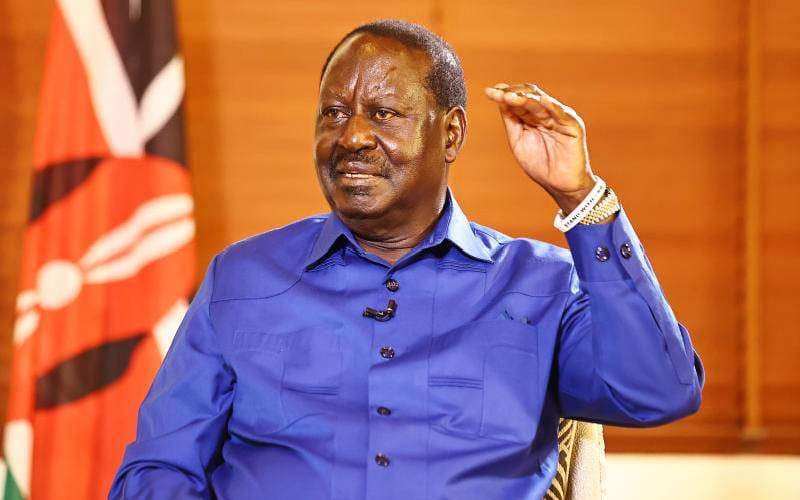We're loading the full news article for you. This includes the article content, images, author information, and related articles.
Analyst Fred Ogola has forecast a waning relevance for Raila Odinga by 2027, arguing that Kenya’s politics are evolving beyond tribal mobilization into economic agendas and issue-based campaigning.

Nyeri, Kenya — September 24, 2025, 14:45 EAT
Analyst Fred Ogola has forecast a waning relevance for Raila Odinga by 2027, arguing that Kenya’s politics are evolving beyond tribal mobilization into economic agendas and issue-based campaigning.
Speaking during a television interview in Nyeri, Ogola asserted that the traditional culture of kinship politics is fading, and future electoral success will increasingly hinge on economic mobilization rather than identity appeals.
“The culture of kinship is dying… we are moving away from tribal politics… we are going to have economic mobilisation rather than political,” Ogola stated.
He warned that Raila’s past dominance—anchored in regional and identity loyalties—may not withstand a political landscape where voters demand concrete economic solutions.
Raila’s historical appeal: Over decades, Raila Odinga has built his support base through strong rooting in Nyanza, Luo communities, and Pan-ethnic alliances like CORD and Azimio.
Shifting voter priorities: In recent elections, urban, youth, and middle-class electorates have placed increasing weight on issues like jobs, cost of living, debt, infrastructure, and services.
Opposition realignment: Many opposition parties and coalitions are recalibrating strategies to appeal to issue voters beyond ethnic blocs.
Advantage in base politics: Raila continues to enjoy deep loyalty in his strongholds, making an abrupt decline unlikely without significant disruption.
Need for reinvention: To remain competitive, Raila and his allies may need to reframe messaging around performance, governance, and economic transformation, not just identity.
Risk of fragmentation: As newer leaders with economic credentials emerge, Raila’s dominance could face challenges from within opposition ranks
Gradual decline: Raila’s influence weakens in swing counties and among younger voters while maintaining core support in traditional areas.
Coalition leverage: He may retain relevance by negotiating key positions or leveraging his coalition power, even as his personal influence ebbs.
Comeback strategy: If he successfully repositions his agenda to economics and governance, he may steady or partially reclaim influence.
Which economic issues will resonate strongest in different regions (jobs, debt relief, agriculture, manufacturing).
How Raila’s inner circle is responding to these forecasts — whether they are already shifting strategy.
The extent to which rising leaders (young, technocratic, issue-based) will challenge Raila internally.
Whether his base will abandon identity alignment for economic promises.
Keep the conversation in one place—threads here stay linked to the story and in the forums.
Sign in to start a discussion
Start a conversation about this story and keep it linked here.
Other hot threads
E-sports and Gaming Community in Kenya
Active 9 months ago
The Role of Technology in Modern Agriculture (AgriTech)
Active 9 months ago
Popular Recreational Activities Across Counties
Active 9 months ago
Investing in Youth Sports Development Programs
Active 9 months ago
Key figures and persons of interest featured in this article